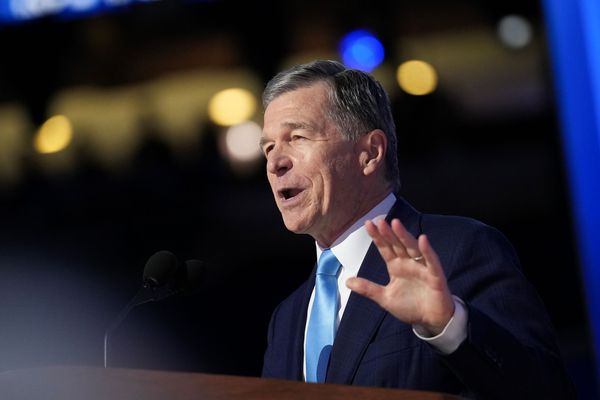WASHINGTON _ Border-state Democrats want to help President Donald Trump approve a new trade agreement with Canada and Mexico _ if they can convince him to remove provisions that would prevent them from delivering on one of their top campaign promises.
House Democrats are pushing legislation to lower prescription drug costs, which they vowed to do during the 2018 elections, by shortening the length of time the government protects some types of brand-name pharmaceuticals from competition.
But Trump's proposal to update the North American Free Trade Agreement, called the United States Mexico Canada Agreement, includes language that would derail those plans by setting longer protections for the same drugs. Congress would not be able to change those limits without violating the rules of the trade deal.
"Here you have a trade agreement that border members of Congress want to be able to eventually support," said Lori Wallach, the director of the left-leaning Public Citizen's Global Trade Watch program. "Yet the administration basically inserted into that trade agreement, a variety of new protections for big pharma that would effectively tie Congress' hands from being able to do the medicine price-lowering reforms that many members now newly in office were elected on the basis of."
Democrats in trade-heavy states like Texas and California face tremendous pressure from the agriculture and manufacturing industries who want them to approve a deal that's critical to their ability to conduct business with Canada and Mexico.
But making health care more affordable, including lowering drug prices, was one of Democrats' most effective messages in the weeks leading up to the 2018 midterms, according to internal polling shared by House Democrats' campaign arm. Democrats across the country campaigned relentlessly on that message on their way to flipping 41 GOP-held House seats, including two in Texas and seven in California.
Democrats on Capitol Hill, including Rep. Lloyd Doggett of Texas, are now working furiously to persuade the administration to remove the new pharmaceutical provisions.
USMCA would require each of the countries in the agreement to give biologic drug makers 10 years of marketing exclusivity for name-brand pharmaceuticals, meaning the government would protect from competition from lower-priced generics, in addition to the regular 20-year patent on all drugs. The deal would also expand the category of drugs that can receive those special protections, adding certain forms of diabetes and osteoporosis treatments to the list that would qualify.
"Both Canada and Mexico objected to this provision, which is not in the existing NAFTA and which is totally contrary to Trump's professed interest in lower drug prices," said Doggett, a senior member of the House panel on trade.
"It really would lead to long-term higher drug prices in the United States," added Rep. Ro Khanna, a California Democrat, who noted that he and many of his colleagues won't support the deal in its current form.
Khanna is the co-sponsor of a bill that would peg the price of prescription drugs in the United States to the median price in five major countries: Canada, the United Kingdom, France, Germany and Japan. Another proposal House Democrats are examining would shorten the current exclusivity window from ten years to seven, a solution that would violate the terms of USMCA.
"As Congress is looking to come up with solutions for the nation's drug pricing crisis, they're not going to be able to use a tool that's currently in their toolbox," said Jonathan Kimball, vice president of trade and international affairs at the Association for Accessible Medicines, which is lobbying Republicans and Democrats on Capitol Hill for changes to USMCA.
Trump wants to be able to campaign on a successfully renegotiated deal in 2020, and his chief trade negotiator Robert Lighthizer worked closely with Democrats to include other top priorities in the proposal. The deal Trump reached with Canada and Mexico in October must still be approved by the Democrat-controlled House and Republican-controlled Senate.
But calls to revisit the pharmaceutical provisions, which Democrats say remain the biggest problem for their party, have so-far been a sticking point between the White House and Congress.
"Right now they would lose a vote, it's not even close," Khanna said of the White House leaders pushing the current version of USMCA.
Pharmaceutical companies argue that the provisions incentivize the creation of new drugs, which could otherwise be copied and sold by other countries in the agreement.
They're among the top financial backers of a business coalition lobbying lawmakers to approve the deal in its current form which launched TV ads in support of that effort earlier this month.
"If we want our U.S. companies to continue to pour money into this very expensive research and coming up with these incredible cures, they're got to be protected from copy cats from Mexico who could immediately copy our compounds and biologics and sell it," said Gary Locke, a former Democratic governor of Washington, which is home to a large number of those companies. Locke is now working for the business coalition, called the Pass USMCA Coalition.







